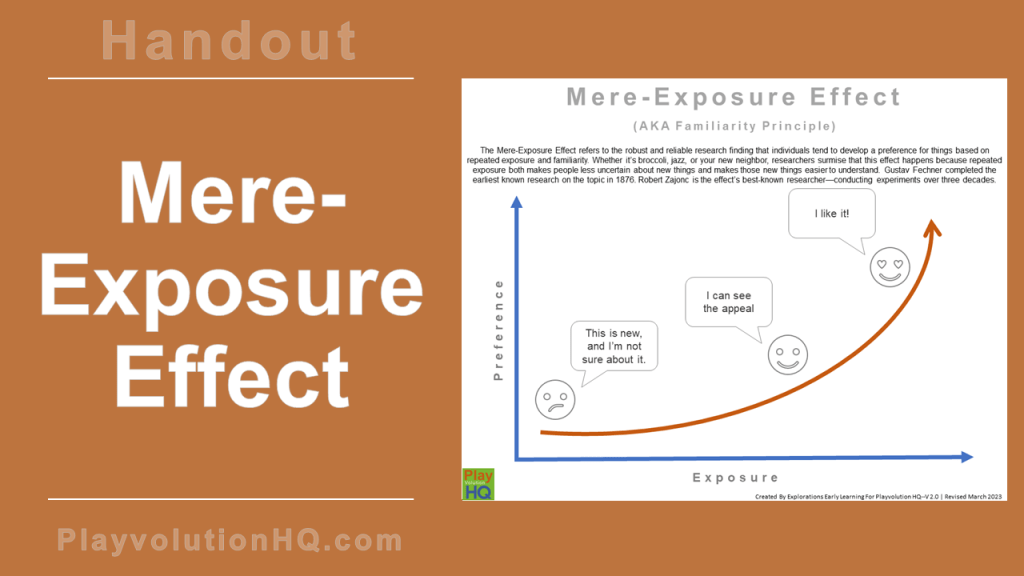Revised | Originally Published: July 3, 2021 @ 4:24 pm

The Mere-Exposure Effect, also known as the Familiarity Principle, refers to the robust and reliable research finding that individuals tend to develop a preference for things based on repeated exposure and familiarity. Whether it’s broccoli, jazz, or your new neighbor, researchers surmise that this effect happens because repeated exposure both makes people less uncertain about new things and makes those new things easier to understand. Gustav Fechner completed the earliest known research on the topic in 1876. Robert Zajonc is the effect’s best-known researcher—conducting experiments over three decades.
Free Mere-Exposure Effect PDF Handout
Related Content
Contribute content to Playvolution HQ
Brought to you by Explorations Early Learning
Browse Trainings

Post Author
Jeff Johnson is an early learning trainer, podcaster, and author who founded Explorations Early Learning, Playvolution HQ, and Play Haven.

Leave a Reply